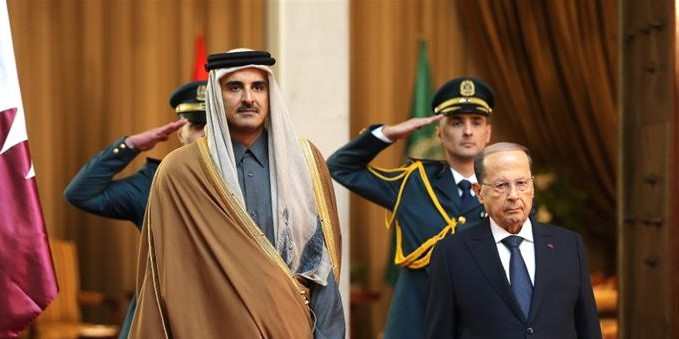Qatar to support Lebanese economy with $500m
January 23, 2019 | Expert Insights

Qatar plans to buy $500 million worth of Lebanese sovereign bonds to support Lebanon’s economy. Lebanon has one of the world’s highest levels of public debt compared to GDP and stagnant growth.
Background
Lebanon is a developing economy, with a private sector that contributes to 75 per cent of aggregate demand and a large banking sector that supports this growth. The IMF forecasted growth of 7 per cent for Lebanon's real GDP in 2010 and 2011 following 9 per cent growth in 2009 and 8.5 per cent in 2008. It has the 44th richest GDP per capita in the world, and it was forecasted that Lebanon's GDP per capita would reach $23,000 by 2018, making it one of the strongest economies in the region. However, the Lebanese economy was badly affected by the Syrian civil war.
The demographic pressure imposed by the Syrian refugees now living in Lebanon has led to competition in the labour market. As a direct consequence, unemployment has doubled in three years, reaching 20 per cent in 2014. The financial constraints were also felt: the poverty rate increased with 170,000 Lebanese falling under the poverty threshold. In the period between 2012 and 2014, the public spending increased by $1 billion and losses amounted to $7.5 billion. Expenditures related only to the Syrian refugees were estimated by the Central Bank of Lebanon as $4.5 billion every year.
Analysis
Qatar will invest $500 million in Lebanese government U.S. dollar bonds to support the countries struggling economy, the Qatari Ministry of Foreign Affairs said. Doha's decision to invest came after Qatar's Emir Sheikh Tamim bin Hamad Al Thani made a brief visit to an Arab economic summit in Beirut during which he met Lebanese President Michel Aoun.
Lebanon has the world’s third-largest debt-to-GDP ratio at more than 150 per cent and a monetary system that relies on constant injections of outside capital. In 2020, Beirut is projected to spend more than half its fiscal revenue on debt servicing, raising questions over the sustainability of its debt burden. The International Monetary Fund, World Bank and politicians have warned in recent months that reforms are urgently needed to put the debt on a sustainable footing and comments from Lebanon's finance minister about the public debt led to a sell-off in the country's dollar-denominated sovereign bonds, though they have partially recovered.
Beirut has already received pledges of foreign support from the World Bank, European Union and regional powers in 2018. They pledged $11bn of soft loans for Lebanese infrastructure development last spring, with the lending to be contingent on evidence that Beirut was tackling fiscal reforms to bring down its deficit.
"Qatar's $500m purchase of Lebanese bonds is a welcome step, but a short-term fix as it will only kick the can down the road given Lebanon's challenges are structural," said Ehsan Khoman, head of MENA research at Japan's MUFG bank. "It will take a coherent and credible fiscal consolidation strategy to offer markets and credit rating agencies more solid comfort and ultimately put the country on a more sustainable trajectory," he said.
"We wish stability and prosperity for the Lebanese republic and the Lebanese people, and that the Lebanese economy will recover. The region needs a strong and prosperous Lebanon," Qatari Foreign Minister Mohammed bin Abdulrahman Al Thani said in a statement.
Lebanon is a focus of a regional proxy war between Gulf rivals Saudi Arabia and the United Arab Emirates on one side and Qatar and Iran on the other. Tehran backs the powerful Lebanese Hezbollah Islamist movement, and Beirut’s traditional supporter, Riyadh, has been frustrated at its failure to limit Hezbollah’s clout. It is mired in this political deadlock and has not formed a government since May elections solidified Hezbollah’s position in the parliament.
Assessment
Our assessment is that Qatar has helped Lebanon in times of political and economic turmoil in the past. This investment is likely to propel Qatar further into Beirut’s political landscape where Saudi Arabia is wrestling Hezbollah. At the same time, it is also likely that Lebanon will drop its neutral stance on the Saudi led blockade of Qatar. We feel that it will allow Qatar to play a more influential role in Lebanon at a time when both countries’ alliances in the Arab world have become threadbare.








Comments